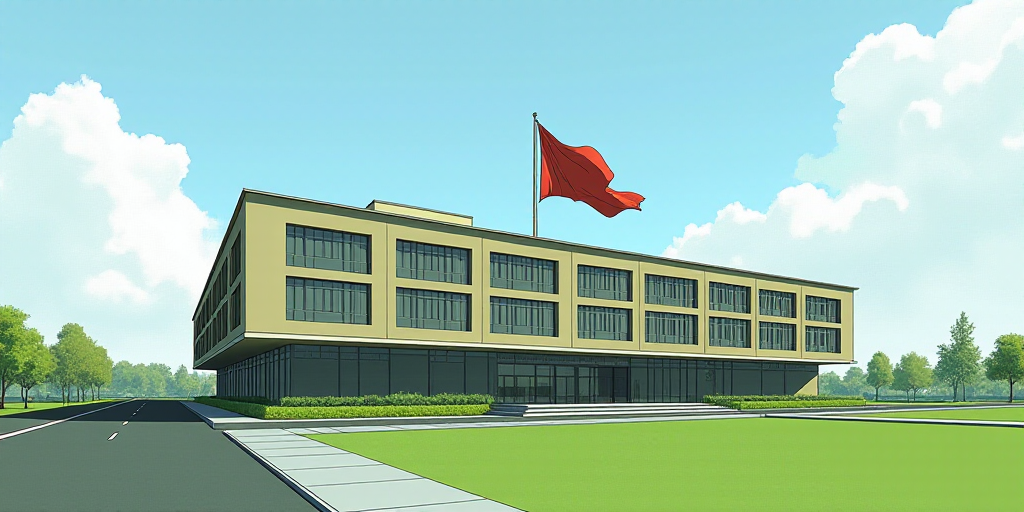Background and Context
In recent years, Mexico’s public universities have faced a series of crises and student strikes, highlighting their democratic systems and internal participation. Among these institutions, the National Autonomous University of Mexico (UNAM), the Autonomous Metropolitan University (UAM), the Autonomous University of Zacatecas (UAZ), and now the Autonomous State University of Mexico (UAEMéx) have been at the epicenter of these movements.
The UAEMéx is currently experiencing one of its most profound crises in recent history due to questions surrounding the legitimacy of authority elections. This crisis began on April 23 with the leakage of an audio recording allegedly featuring then-rector Carlos Eduardo Barrera Díaz threatening to withhold funds from the institution if his candidate did not win in the rectorship renewal process. This incident sparked student protests demanding the suspension of the electoral process, universal suffrage implementation, and the rector’s resignation, despite unverified claims.
Timeline of Events
- May 12: The University Council approved the suspension of the rector selection process.
- May 13: Carlos Eduardo Barrera Díaz resigned, and the University Council appointed an interim head to resume dialogue with the student community.
- May 6: Students took over the Rector’s building, and more than 20 faculties and university centers joined an indefinite strike, temporarily halting the election of UAEMéx’s first rector.
Current Status of the UAEMéx Movement
In an extraordinary session, the University Council approved Isidro Rogel Fajardo as Interim Head of the Rector’s Office for a three-month period. Rogel Fajardo, accompanied by members of the Special Dialogue Commission and the University Council, visited the Rector’s building (now called “Casa del Estudiante”) to establish direct communication with the student movement and address their petitions.
Rogel Fajardo publicly declared non-criminalization and respect for the university movement, expressing willingness to address student demands and construct agreements.
As a result of these agreements, three university spaces announced their return to regular activities on May 16. The Medical Faculty, with the second-largest enrollment at UAEMéx and providing academic accreditation to specialties in 59 hospitals across three federal entities, stated they would resume normal activities. The Nursing and Midwifery Faculty also announced the end of their strike, as did the Dentistry Faculty.
On May 18, two more academic spaces announced their return to activities starting May 19, 2025. The UAEM Valle de México Center detailed their decision in an assembly on May 16 to fully resume academic and administrative activities. Meanwhile, the Institute of Agricultural and Rural Sciences (ICAR) announced a return to activities on Monday due to the closure of their Campus Universitario El Cerrillo, opting for digital participation.
The UAEM Tenancingo Center also announced a return to normal activities following the end of their indefinite strike, though concerns remain about potential strategic degradation by those who failed to register as rector candidates.
University Dissatisfaction Across Multiple Institutions
These movements reflect growing dissatisfaction among Mexican public universities, where students and academics demand more democratic processes, transparent authority elections, and attention to internal issues affecting educational quality and university community safety.
For instance, at UNAM, protests intensified following the approval of reforms to the University Tribunal Regulations, particularly the modification of Article 15 allowing immediate sanctions for acts deemed “vandalistic.” The ambiguity of this reform raised concerns among students, who interpreted it as a threat to freedom of expression and protest. Faculties such as Economics, Architecture, Political and Social Sciences, among others, suspended activities in rejection of these modifications. Under pressure, Rector Leonardo Lomelí announced the review and subsequent elimination of the contested article.
The UAM has faced strikes in its five units due to allegations of gender-based violence and demands for increased security on campuses. Students have called for more effective protocols to address harassment and violence cases, as well as improved infrastructure conditions.
At UAZ, the Sindicato de Personal Académico (SPAUAZ) has organized academic strikes demanding responses from Rectoria to their labor demands and improvements in working conditions.
On January 15, students from the National Conservatory of Music initiated a truce in their protest following negotiations with INBAL, though they continue an “active strike” demanding more budget and infrastructure improvements.






